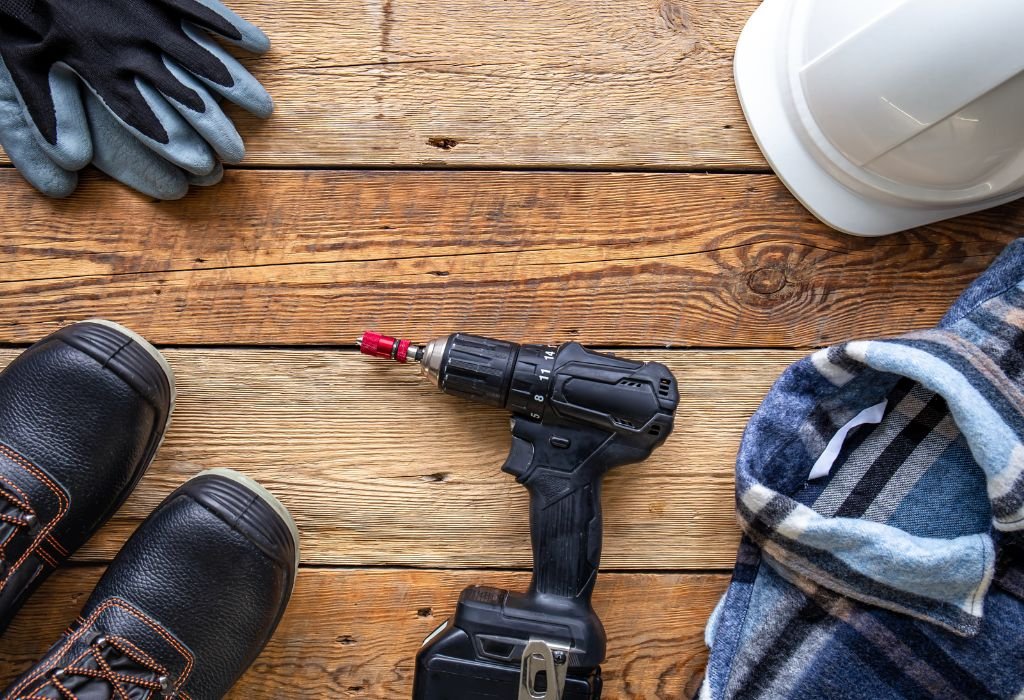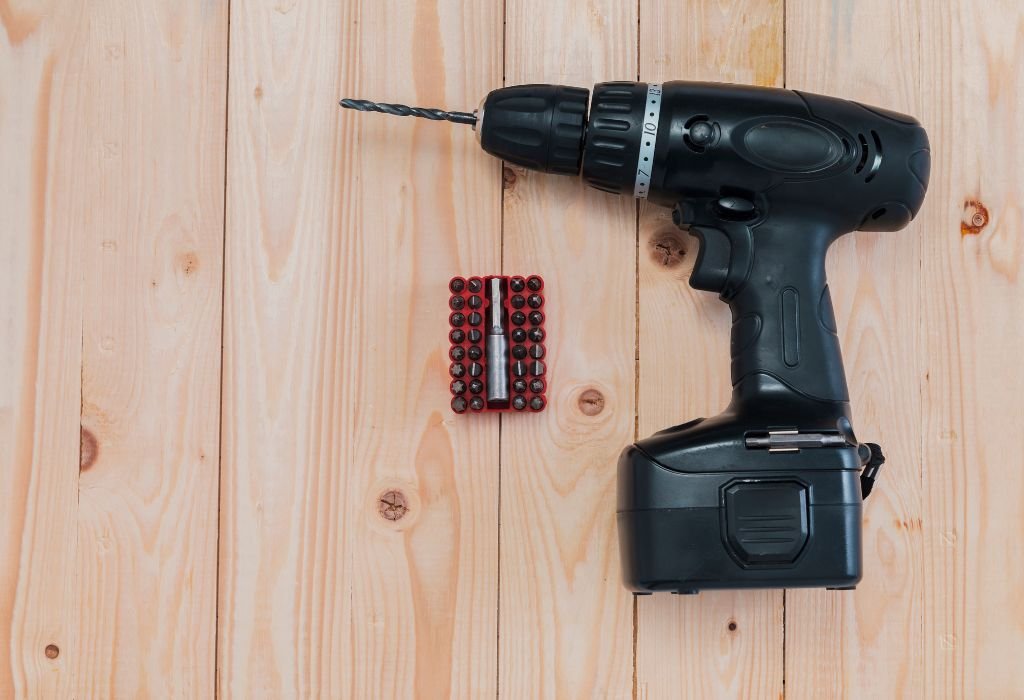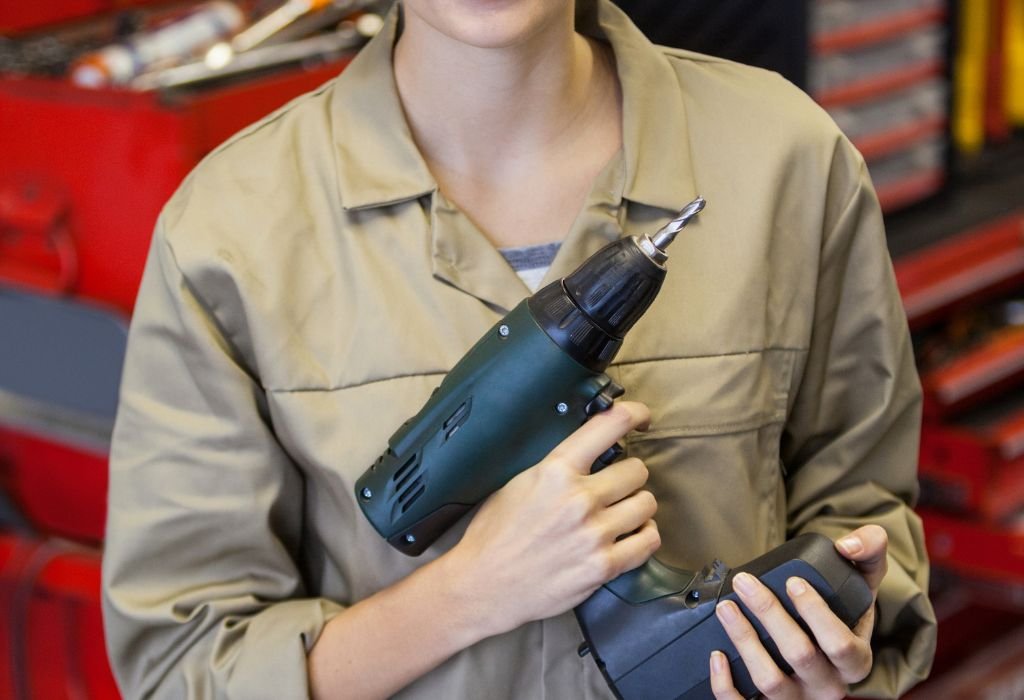Cordless drills have become one of the most used tools for homeowners and DIY enthusiasts, offering the freedom to work without dealing with power cords. Among many brands, Black and Decker stands out because of its affordability and accessibility. But many buyers ask the same question before investing: are Black and Decker cordless drills any good? According to recent market research, over 70% of entry-level power tool users in the US start with budget-friendly brands like Black and Decker. These drills are popular for light to medium tasks such as furniture assembly, hanging shelves, and small woodworking jobs. However, they often spark debate when compared with more premium brands like DeWalt or Makita. This guide will provide an honest review of Black and Decker cordless drills, looking at their strengths, weaknesses, and whether they are the right choice for your projects.
1. Overview of Black and Decker as a Brand

- Black and Decker is an American brand with over a century of history in manufacturing affordable home improvement and power tools.
- The company primarily targets homeowners, casual DIYers, and people who want reliable tools at a low price.
- Compared to professional brands such as DeWalt, Milwaukee, or Makita, Black and Decker focuses more on everyday projects rather than heavy-duty construction work.
- Their cordless drills are widely available in retail stores, hardware chains, and online marketplaces, making them easy to purchase anywhere.
- The brand is known for innovation in household tools but is not positioned as a top-tier choice for professional contractors.
2. What Makes a Good Cordless Drill?
- A good cordless drill is measured by factors such as torque (turning power), speed settings, battery efficiency, ergonomics, and durability.
- DIY users often prioritize lightweight design and affordability, while professionals look for higher torque and long battery life.
- Lithium-ion batteries are now standard in modern drills, ensuring faster charging and longer runtime.
- Drill versatility, such as adjustable clutch settings and variable speed triggers, makes the tool useful for different materials.
- Black and Decker cordless drills aim to provide all essential features for home projects, though not always at the same performance level as pro-grade models.
3. Black and Decker Cordless Drill Features
- Voltage Options – Black and Decker cordless drills are available in multiple voltage ranges, mainly 12V, 18V, and 20V MAX systems. The 12V drills are compact and lightweight, designed for small household tasks, while the 20V MAX lineup offers more power for medium projects.
- Battery Technology – Most modern models come with lithium-ion batteries that hold charge for months and can be recharged within an hour to two, depending on the charger. Runtime is decent for light to moderate projects, but frequent heavy use drains the battery faster compared to premium brands.
- Design and Ergonomics – Black and Decker drills are built to be user-friendly. They are lighter than many competitor models, often weighing between 2.5 to 4 pounds, making them suitable for longer use without hand fatigue. The handles are designed with rubber grips for comfort and stability.
- Speed and Torque – Average torque output is between 115 to 300 in-lbs depending on the model, which is good enough for drilling into wood, plastic, and light metals. Variable speed settings give better control over delicate tasks like driving screws into softwood.
- Versatility and Attachments – Some models feature multi-function capabilities like drill/driver combos, and others are compatible with attachments such as sanding heads or screwdriving kits. This makes them appealing to DIYers who want one tool for multiple small tasks.
4. Advantages of Black and Decker Cordless Drills
- Affordability – Perhaps the biggest strength of Black and Decker is its price point. Their cordless drills are among the most budget-friendly options in the market, often available for under $50 to $80, which makes them a good entry-level choice.
- Beginner-Friendly – The lightweight design and simple controls make them ideal for users who are new to power tools. They are easy to operate and don’t overwhelm beginners with unnecessary features.
- Good for Everyday DIY Projects – For household jobs like drilling pilot holes, assembling flat-pack furniture, hanging curtain rods, or small woodworking tasks, they perform well.
- Widely Available – Since Black and Decker is a household brand, their tools and batteries are available in almost every hardware store and online marketplace like Amazon and Home Depot.
- Compact and Lightweight – Their size makes them convenient for working in tight spaces such as inside cabinets or overhead drilling without causing fatigue.
5. Limitations of Black and Decker Cordless Drills

- Lower Torque for Heavy Jobs – Compared to professional brands, Black and Decker drills don’t provide the same level of torque. This means they struggle with harder materials like thick hardwood, masonry, or heavy construction tasks.
- Durability Concerns – While fine for light use, frequent heavy-duty projects may wear them out faster. The plastic build and lower-end components are less rugged compared to premium models.
- Battery Performance – Although they use lithium-ion batteries, runtime is shorter when compared to DeWalt or Makita drills with larger capacity packs. Long projects may require frequent recharging.
- Fewer Professional Features – Features like brushless motors, advanced torque control, or hammer drill functions are usually missing in most Black and Decker cordless drills.
- Not for Contractors – Professional builders or anyone who needs daily, demanding drilling tasks will find these drills underpowered and less reliable for long-term use.
6. Who Should Buy Black and Decker Cordless Drills?
- Homeowners – If you live in a house or apartment and need a tool for light maintenance tasks like tightening screws, drilling small holes, or assembling shelves, a Black and Decker drill is perfect.
- Renters – Those who don’t want to invest heavily in tools but still need something reliable for small tasks will find this brand cost-effective.
- Beginners and Casual DIYers – Since these drills are lightweight, simple, and affordable, they are excellent for people who are just starting out with home projects.
- College Students or First-Time Tool Owners – Young users setting up their first apartment often benefit from a Black and Decker cordless drill as an affordable entry point.
- Occasional Users – If you only plan to use the drill a few times a month, you don’t need a heavy-duty tool. Black and Decker gives enough power for occasional use without overspending.
7. Who Should Avoid Black and Decker Cordless Drills?
- Professional Contractors – Those who use power tools daily for construction, carpentry, or electrical work need more torque, durability, and longer runtime.
- Frequent DIY Enthusiasts – If you are constantly building furniture, renovating, or doing big projects, you will quickly outgrow the capabilities of a Black and Decker drill.
- Users Working with Tough Materials – Drilling into thick hardwood, masonry, or steel will push the limits of these drills, often resulting in frustration or damage to the tool.
- People Expecting Long Battery Life – If you need hours of continuous use without interruption, Black and Decker batteries may not meet your expectations compared to premium brands.
- Those Looking for Premium Features – If you specifically want features like brushless motors, hammer functions, or professional-grade chuck strength, you will need to look at higher-end brands like DeWalt or Makita.
8. Comparison with Other Brands
- Black and Decker vs DeWalt – While both brands are owned by the same parent company (Stanley Black & Decker), DeWalt is targeted at professionals with more power, durability, and advanced features. Black and Decker, on the other hand, focuses on affordability and home use.
- Black and Decker vs Bosch – Bosch drills are known for their balance of power and durability, often serving both pros and advanced DIYers. Black and Decker is cheaper but lacks the same performance levels.
- Black and Decker vs Makita – Makita is a premium Japanese brand with high-torque, durable drills favored by contractors. Black and Decker is much more budget-friendly but cannot match Makita’s heavy-duty reliability.
- Black and Decker vs Milwaukee – Milwaukee drills are high-end, built for professionals with excellent torque and long runtime. Black and Decker offers a far lower entry price, making them more suitable for beginners.
- Verdict – If you’re a pro, premium brands are the way to go. If you’re new to DIY or on a budget, Black and Decker offers decent quality at a fraction of the cost.
9. Real User Reviews and Experiences
When it comes to customer feedback, Black and Decker cordless drills receive a mixed but generally positive response from everyday users. On Amazon, many of their popular 20V MAX models hold ratings between 4.2 and 4.5 stars out of 5, showing that most buyers are satisfied with their purchase. Users often highlight affordability, lightweight design, and ease of use as major strengths. Beginners frequently mention that these drills gave them the confidence to take on small projects like hanging curtains, putting together bookshelves, or drilling pilot holes in wood. On the downside, some reviewers complain about limited torque and shorter battery life when handling more demanding tasks. A common theme across reviews is that these drills are excellent for light jobs but not suitable for professionals. In short, users appreciate the value-for-money factor, especially considering the low entry price.
10. Best Black and Decker Cordless Drill Models (2025 Edition)

- Black and Decker 20V MAX Cordless Drill/Driver (LDX120C) – One of the most popular models, known for its compact size, 11-position clutch for precision, and reliable performance for home projects. Ideal for beginners.
- Black and Decker 20V MAX Matrix Drill System – A versatile option with interchangeable attachments such as a sander, jigsaw, and screwdriver, making it a multi-tool for DIY users who want flexibility.
- Black and Decker 12V Cordless Drill – Extremely lightweight and affordable, perfect for very light household use like assembling furniture or drilling into softwood.
11. FAQs About Black and Decker Cordless Drills
- Are Black and Decker cordless drills reliable? – Yes, they are reliable for light to medium projects, though not designed for heavy-duty professional work.
- How long does the battery last? – Most models offer 30–60 minutes of continuous use depending on the task, but charging is fairly quick.
- Can they drill into concrete? – They can handle thin concrete with masonry bits, but for serious masonry work, a hammer drill or higher-end brand is recommended.
- Do they come with a warranty? – Yes, most Black and Decker drills come with a 2-year limited warranty.
- How do they compare to DeWalt drills? – DeWalt offers more power and durability for professionals, while Black and Decker is cheaper and best suited for DIY tasks.
- Are replacement parts and batteries easy to find? – Yes, since it’s a well-known brand, replacement batteries and accessories are widely available.
- Are they good for woodworking? – Yes, for light woodworking projects, they perform well, especially for drilling pilot holes and driving screws.
- Do they support brushless motors? – Most entry-level Black and Decker drills use brushed motors, but some upgraded versions may include brushless technology.
- What is the price range? – Typically $40–$100 depending on voltage and features, making them very affordable.
- Who should buy Black and Decker drills? – Beginners, homeowners, and anyone looking for a budget-friendly, lightweight cordless drill.
12. Final Buying Checklist
- Define Your Purpose – Are you buying for light DIY or heavy-duty construction? Black and Decker drills are best for light to medium tasks.
- Choose the Right Voltage – 12V for very light work, 18V or 20V MAX for more versatile home projects.
- Check the Battery Type – Always go for lithium-ion versions since they hold charge longer and recharge faster.
- Compare Torque and Speed Ratings – Ensure the drill matches the type of materials you’ll be working with.
- Look at Weight and Ergonomics – A lighter drill is easier for overhead or long-duration work.
- Consider Attachments – If you want one tool for multiple jobs, look at the Matrix series with interchangeable attachments.
- Read User Reviews – Customer experiences will give you real-world insight into performance and durability.
- Set a Budget – Black and Decker drills usually range from $40–$100, so pick one that balances cost and features.
- Warranty and Support – Confirm the warranty coverage and availability of replacement batteries.
- Think Long-Term – If you expect to move into heavy-duty work later, you may eventually need to upgrade to a professional brand.
13. Conclusion
So, are Black and Decker cordless drills any good? The answer is yes—if you are a DIY user, homeowner, or beginner looking for an affordable and easy-to-use drill. These tools shine in light to medium tasks such as assembling furniture, hanging shelves, or small woodworking projects. Their biggest advantages are affordability, lightweight design, and wide availability. However, they are not built for professional contractors or heavy-duty use where more torque, longer battery life, and durability are essential.
If you are just starting out or only need a drill for occasional use, Black and Decker offers one of the best value-for-money options in the market. On the other hand, if you plan to tackle daily construction work, it’s better to invest in premium brands like DeWalt, Makita, or Milwaukee.
In the end, choosing the right drill comes down to your needs, frequency of use, and budget. Black and Decker is a smart entry-level choice that gives you everything you need to get started with DIY projects without breaking the bank.

I’m John F. Nicholas, the founder, lead writer, and drill enthusiast behind 101drill.com. With years of hands-on experience in power tools and DIY projects, I created this platform to share practical knowledge, expert tips, and real-world insights to help others master the art of drilling.
